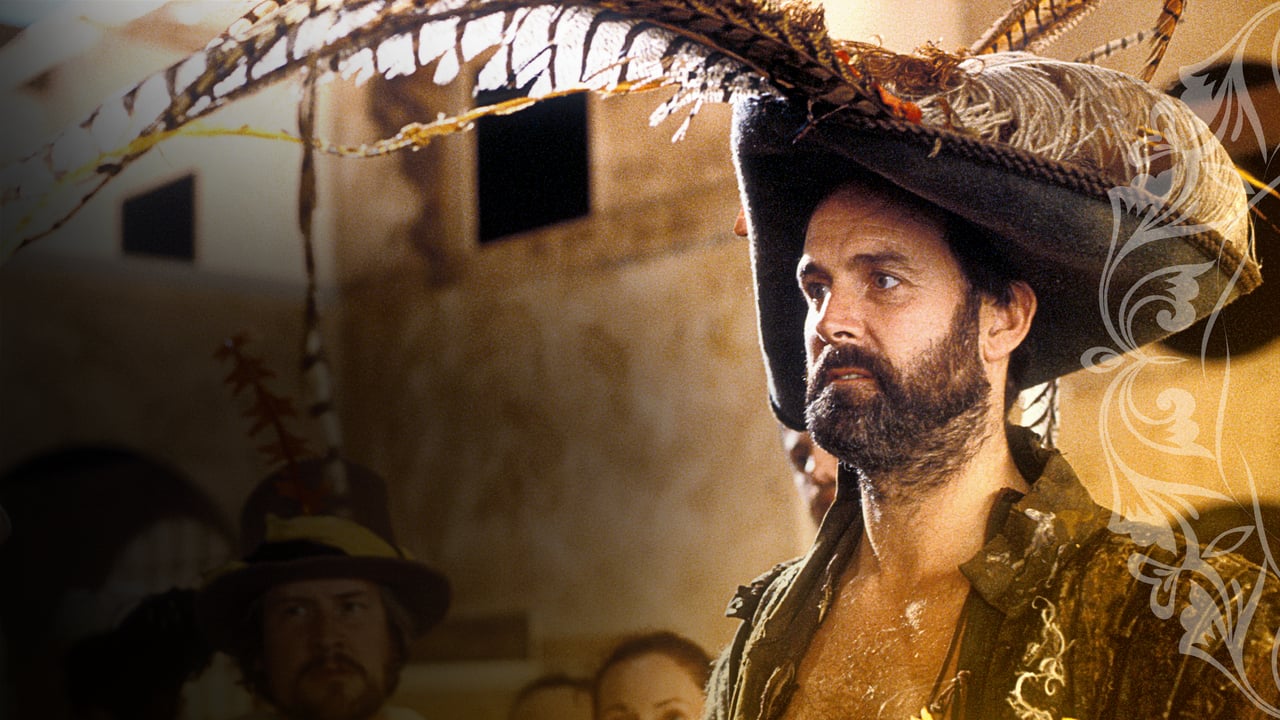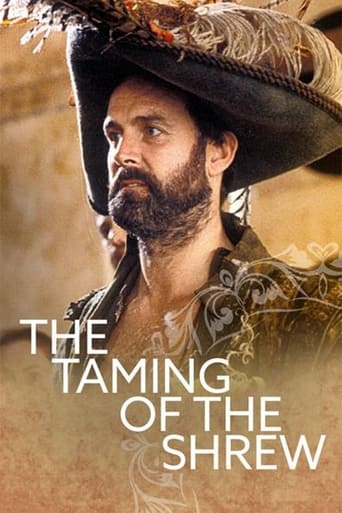Breakinger
A Brilliant Conflict
Dynamixor
The performances transcend the film's tropes, grounding it in characters that feel more complete than this subgenre often produces.
Yash Wade
Close shines in drama with strong language, adult themes.
Sienna-Rose Mclaughlin
The movie really just wants to entertain people.
Dr Jacques COULARDEAU
This is a famous comedy, maybe the most famous comedy by Shakespeare. It was made famous by Elizabeth Taylor and Richard Burton but it stands apart in Shakespeare's comedies. In most comedies we have four couples getting married or re-united at the end. In this one we have only three women who get married to three men of course. Three in Shakespeare's style is the incongruous and disorderly rhythm that breaks the perfect iambic harmony of two or four. In his language anything coming by three is a sign of some disruption, some tempest coming, some imbalance that menaces the normal peaceful course of events. So there is an element of disorder in this ending. And there is another in the number of ternary elements the final speech of Katharina at the end, a speech to her sister for her to understand she has to submit to her husband for the good of the couple and for her own comfort. The number of ternary elements is dense. Let me give a few examples: "thy lord, thy king, thy governor", "it blots…, confounds… and in no sense is…", "thy husband is thy lord, thy life, thy keeper, / Thy head, thy sovereign." (1 + 3 + 2 = 6), "warm at home, secure and safe", "but love, fair looks and true obedience". But the acme of this imbalance is brought by a pentacle, a group of five elements, the devil in the story: "…froward, peevish, sullen, sour, and not obedient", "but a foul contending rebel, and graceless traitor" (3 + 2 =5, or Adjective + adjective + noun + adjective + noun = 3 adjectives + 2 nouns = 5). This is clear enough and it is the absolute meaning of the speech to the sister: submit for your benefit, and of course you can think as much as you want, as long as you have peace you can. This spirit of women in fact getting the best out of their husbands for their own sake and not for their husbands' sake, is the central meaning in this play. Women are no hypocrites or liars or simulators in any way. They are just taking care of their best interest and what the husbands may see as submission is the guarantee for women to have their independence and freedom. Apart from this general meaning, which is ahead of its time as for women in society in the 16th century, the play is such an accumulation of disguises and servants playing masters and masters playing servants, and sons and fathers, and fathers and daughters, without counting all the suitors, that we are literally made slightly dizzy. The language, the puns, the innuendo, the playing on words and all the wit, some of it openly gross, some insinuating some grossness, make this comedy real fireworks of fun and pleasure: water music one century early. This BBC production is fair enough and the setting is wider than a stage which enables the angle of vision to change which gives to our perception of the public or private space a dimension it probably does not have, in between a natural setting and a sound stage. The dynamism of the actors is just fun, including the final song of the banquet which is just amateurish enough to sound plain true.Dr Jacques COULARDEAU, University Paris 1 Pantheon Sorbonne, University Paris 8 Saint Denis, University Paris 12 Créteil, CEGID
Ephraim Gadsby
This "The Taming of the Shrew" directed by Jonathan Miller and starring John Cleese is probably as good as we'll ever get.William Ball's 1976 commedia dell'arte version with Marc Singer (shown on "Great Performances" and available on DVD) is fun, but perhaps too freewheeling. On the opposite end of the spectrum, Franco Zeffirelli's 1967 Taylor/Burton film is no fun at all.Miller and his excellent cast seem to hit the right note. A few of the actors do fall into that Shakespearean trap of reciting their lines as if they're in a race to finish, rather than speaking them normally. Most of the actors do a good job.The major flaw in this "Shrew" is that it abandons the Christopher Sly framing device, without which the play becomes impossible to understand. I suppose the Sly device tends to make the play-within-a-play a silly entertainment that cannot be taken seriously, while Miller's intentions seem to be to present the characters as real and believable as possible. Cleese's Petruchio comes off as thoughtful and heartfelt, while the Sly device perhaps forces a rambunctious, over-the-top performance, a la Marc Singer. It strikes me as curious that this "Shrew" can be presented as near-letter-perfect Shakespeare without Sly.Nevertheless, it's as good as possible, I suppose.
KimAC5
I recently studied this play in Brit Lit, and I definitely think that even though this version might be a little slower than the Zefferelli version, it is better. The Zefferelli version reverts back to the physical, cheap humor that Shakespeare obviously steers clear of, because in his day there were a number of those kinds of plays out there, but they were cheap, superficial plays. Also, Zefferelli leaves out the falcon soliloquey. I think that John Cleese is just a genius with comedy, and I am also a big fan of Frank Thorton. Besides that, I think that the makers of this film understood the real themes of Taming, and tried to portray them in the movie, as opposed to Zefferelli, who added extraneous things to make it more "amusing", but thus led it further away from Shakespeare's true meaning.
Rosabel
Jonathan Miller manages to take all the fun out of this play - even the casting of John Cleese as Petruchio was a disaster. When this play was first broadcast on PBS, it was followed by an interview between Miller and Cleese, where they smugly compared their dismal version with that of Franco Zeffirelli, who they thought was much to blame for filling his film with high spirits and humorous images. Don't show the Miller/Cleese version to your children, unless you want to kill dead any interest in Shakespeare they might be developing.

